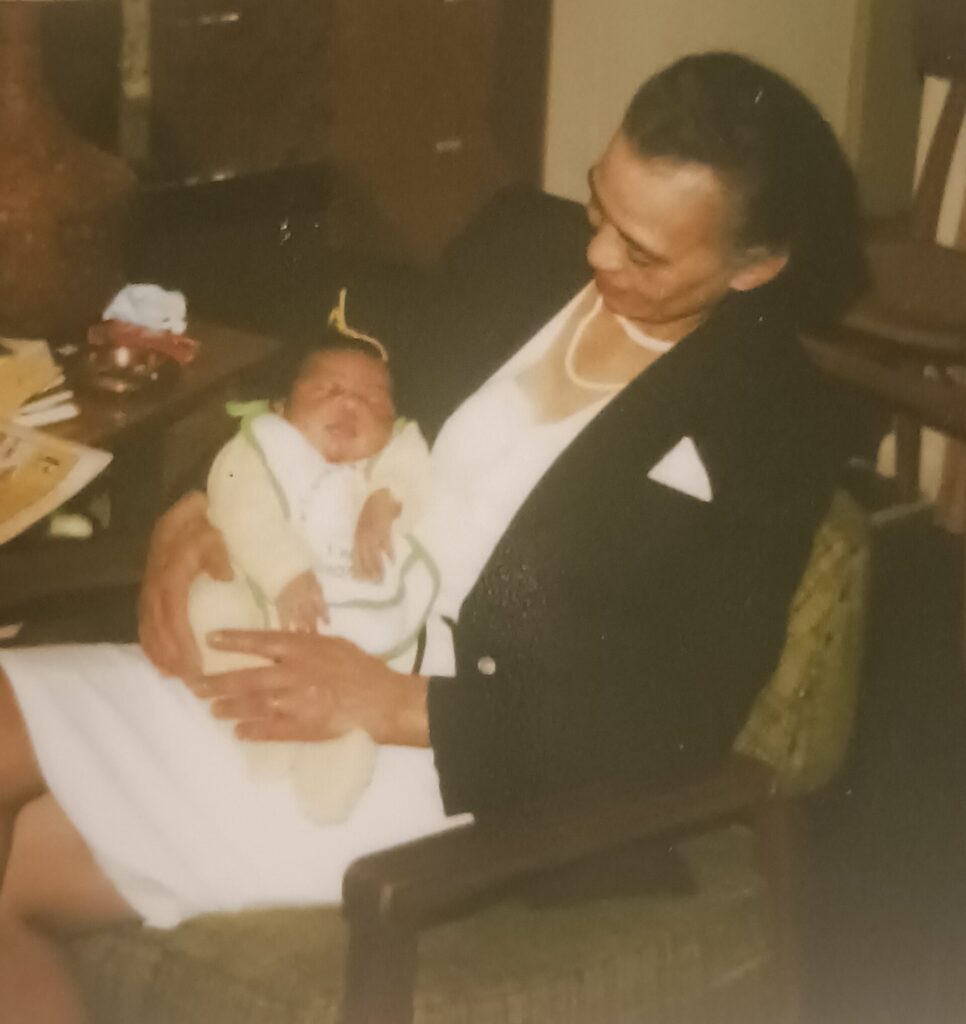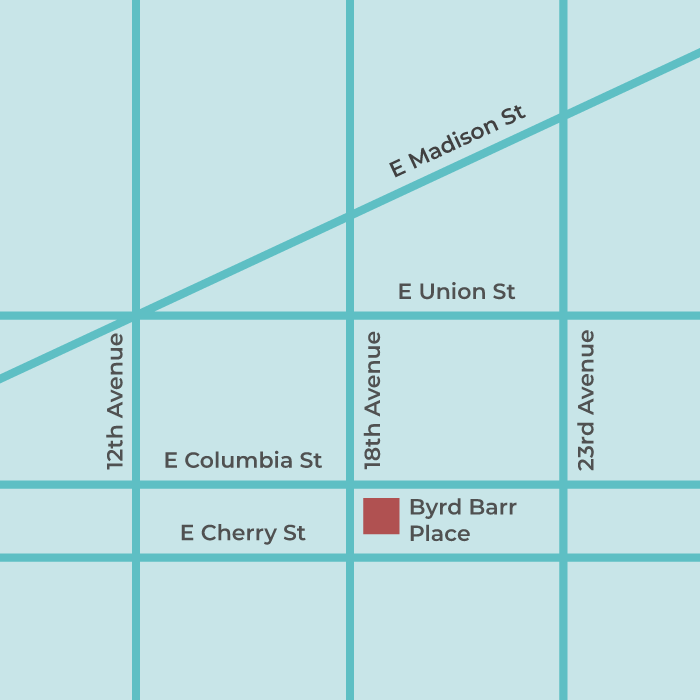Activist. Educator. Community advocate. Television presenter. High school principal. Icon.
There are so many words that can describe our amazing namesake Ms. Roberta Byrd Barr, but perhaps the most powerful is simply: Grandma.
As we celebrate 60 years of Byrd Barr Place’s community stewardship guided by Ms. Roberta’s vision, we had the incredible privilege to chat with her granddaughters Robin and Angelique, as well as her great-grandson Curtis. Each shared their cherished memories and special relationships with a woman who has meant so much to so many.
Tell me about your relationship with your grandmother. What was she like?
Angelique: Grandma Barr was everything. She basically raised me, and our lives with her were fun and peaceful. I always had huge respect for her; she carried herself with a demeanor that demanded that respect. At the same time, she was warm, patient, and incredibly kind. She loved to cook, always using fresh herbs and vegetables from the garden she tended. I just made her spaghetti recipe yesterday!
Robin: Grandma Barr and I spent a lot of time together. I was the youngest granddaughter and would go over to her house most weekends. She always made sure I had the very best. She enabled me to attend tutoring every week, and she put me in piano lessons, and Angelique in ballet. She gave us opportunities to do what was outside the norm for a young Black child living in the Central District
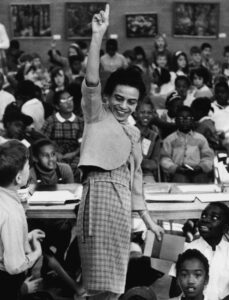
What impact did your grandmother have on you growing up?
Angelique: Grandma had a direct impact on what I do today! I work in construction. I build homes. I recently submitted permits to build 38 homes in Tacoma, Washington, where she lived growing up.
When I was young, my grandfather built me a 3-foot-tall dollhouse. Instead of buying me ready-made furniture from the catalog. Grandma found construction sets I could use to build them myself. That simple act gave me my love of construction.
Robin: With Grandma it was all about family values, finding reasons for us all to gather and celebrate. I still remember my 11th birthday. She rented out space at the Seattle Space Needle, and my whole family was there with all of my friends from the 5th grade. She bought me a beautiful keyboard to help me with my piano lessons. I’ll never forget that.
Curtis, you are one of Ms. Roberta’s great grandchildren. How have you been influenced by her and her memory?
Curtis: When I was in kindergarten, my cousin Amaranayh and I were in the same class. Our school took us on a field trip to the Black History Museum. While we were walking through the exhibits, we actually saw a section dedicated to our great grandmother! We were so proud to be related to her and share what we knew of her story.
I took that as a sign, and as I got older, I really took her passion for education to heart. It was a major driver in making sure I was performing well in school. After all, I have to make my great grandmother proud! She can’t have been all she was and do all that she did for her descendants not to take their education seriously. And, Amaranayh was inspired to major in special education and become a teacher.
We both really credit our great-grandmother’s legacy to helping us move forward and getting us to where we are today.
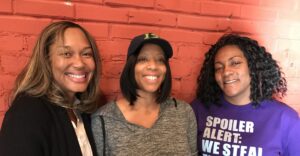
Your dad and uncle told you that your grandmother was special and they wanted to memorialize her. Can you tell me how you felt when you were asked if the organization could be renamed after her?
Angelique: I always knew my grandma was special, and before my dad passed, he was working hard to have her memorialized in some way.
He had just passed away when they came to us with the idea. I was in tears, I still cry thinking about it now. Everyone sees the amazingness of her legacy, but growing up, she was just grandma. The grandma everyone would want.
Robin: My dad spent the last years of his life actively seeking out opportunities to honor her legacy. He would spend hours in the library researching, writing to people, getting her PBS materials out into the world.
I was overjoyed when they wanted to name the organization after her. If my dad was here he’d be over the moon. Words can’t express what this would have meant to him. His dream of having my grandmother’s legacy live on came true.
What do you feel has been the organization’s biggest impact on the community over the past 60 years?
Angelique: Byrd Barr Place has been an amazing resource to the community for longer than I’ve been alive. They’ve helped me pay my utility bills and gave me food when I didn’t have it, and I’ve taken classes there. Through its history as CAMP and now as Byrd Barr Place, they have been by us and for us, and that’s really powerful.
Robin: I’ve been going to Byrd Barr Place my entire life! I remember playing on the firehouse stairs and getting gifts for Christmas.
With all the gentrification in the Central District, it’s important to still have a lifeline for the people who have been displaced. It’s amazing that it’s still there, and with the purchase of the building, not only has it been a pillar of the community for 60 years, it will hopefully continue to be so long into the future.
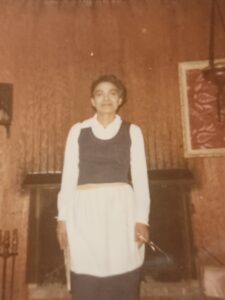
What do you believe Ms. Roberta would want her legacy to be?
Angelique: My grandmother was an educator and a storyteller. She would want folks to understand the importance of getting a good education and writing your own story. The sky’s the limit — there’s nothing you can’t do.
Robin: It was always important to grandma to help people in minority communities by empowering folks to be knowledgeable. She always stressed the importance of knowing yourself, your family, your community and the world.
Curtis: My great grandmother would want all Black and brown children to know that their minds are powerful. Education can take you anywhere, you just have to be willing to do the work.
